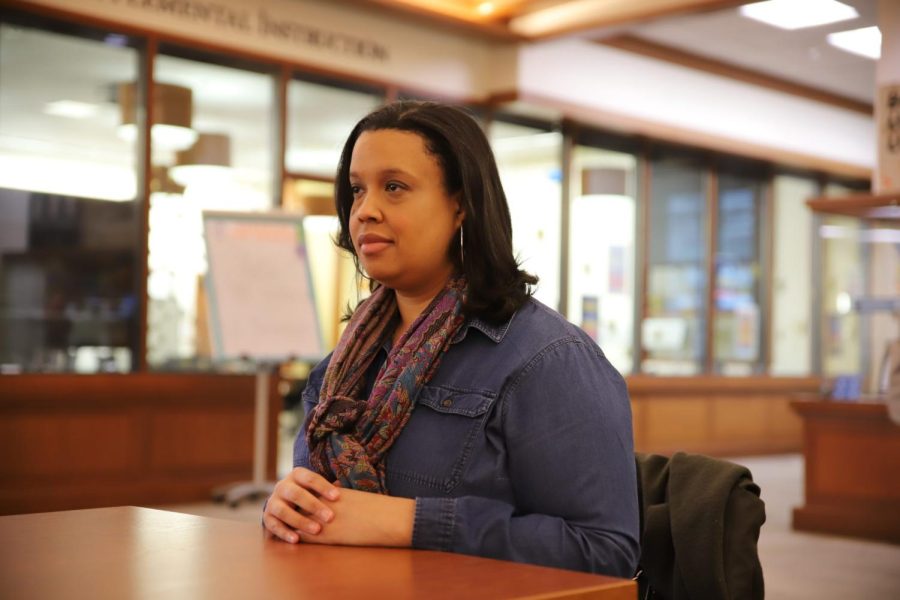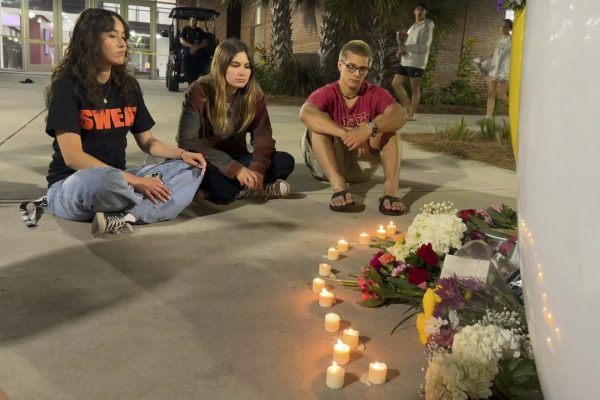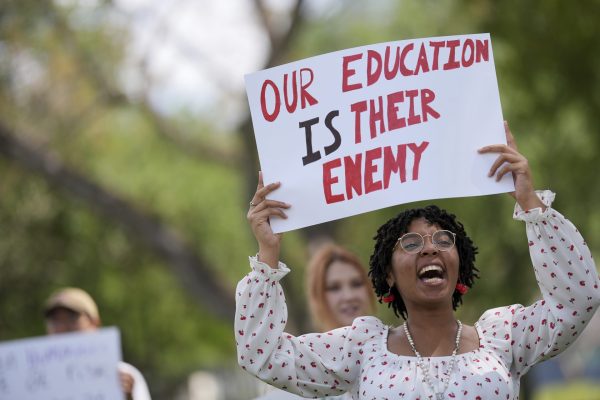‘She’s made a difference’: Ashley Stone tackles topics of intersectionality, sociology at DePaul
Ashley Stone, the new Ida B. Wells teaching fellow and DePaul alumna, is teaching an intersectionality course and plans to teach an Ida B. Wells course in the spring designed to talk about her life and legacy.
As a Bronzeville native and DePaul alumna, Ashley Stone, the new Ida B. Wells teaching fellow, takes her work beyond the walls of the classroom and into the communities of her city. For Stone, Chicago and DePaul are home.
Hired in August 2022, her work as a fellow includes teaching on subjects of sociological theory, race and intersectionality while giving her the flexibility to continue research projects and time to work on her publications. After getting her Ph.D. from the University of Central Florida, Stone’s goal was to always come back to the city that never fails to inspire her.
“I’m never out of research ideas because Chicago, while it has its challenges, [is] a city that is going to make you think, it’s going to make you grow, and if you’re lucky, it will inspire you too,” Stone said.
Activism and social movements influenced her at an early age from relatives involved in the civil rights movement and educators that took her learning beyond the classroom.
For Stone, Ida B. Wells was a central role model growing up in the shared home of Bronzeville, which translated to much of her work and research focusing on the exclusion of Black women from the sociology curriculum nationally.
Wells was an early leader in the civil rights movement battling sexism and racism. As a skilled journalist, she shed light on the racial disparities in the South.
“A lot of the foundations of intersectionality came from Black feminist work as early as the late 1800s from people like Ida B. Wells,” Stone said. “We often leave women out, we often leave people of color out, which means that Black women are often left out even though they make significant contributions to the discipline.”
Currently, Stone is teaching an intersectionality course and plans to teach a Ida B. Wells course in the spring designed to talk about her life and legacy.
“I think it’s so critical to read her work because we see some of the same patterns today with the power dynamics, who gets oppressed and whose power is amplified in this country,” Stone said.
Working with the Steans Center for community-based service learning, Stone is collaborating with community activists while strengthening ties to her Bronzeville legacy.
Associate Director of the Steans Center, Helen Damon-Moore, worked with Stone as she facilitated a workshop on negotiating identity in the community and the classroom.
“She made a real difference in helping her faculty person to reflect on their practice,” Damon-Moore said.
Stone’s latest research project focused on the inclusion and exclusion of Black women from the sociology curriculum. Through analyzing nationwide syllabi from Ph.D. programs across the country, Stone found that classical theorists were overwhelmingly white men according to her study.
Stone believes this stems from a reproduction of knowledge from facilities’ graduate programs and their lack of diverse curricula.
“In a society where we’re talking about diversity, equity and inclusion more, why do we not see these scholars who write about these things in the curriculum more often?” Stone said.
She also found that female faculty who taught classical theory tended to be the ones to not include women, while men tended to include Black women more.
“I think it’s because they want to be seen as legitimate,” Stone said. “Because of sexism, to be validated, [women are] stuck with Marx, Weber and Durkheim.”
Through her research and publications, Stone has translated what she has learned into how she wants to teach.
For the Journal of Women, Gender and Families, she wrote “Changing Poison in Medicine,” which reflected on her time in graduate school as a woman of color experiencing racism and sexism. As a Buddhist, she reflected on that adversity and made it valuable.
“That’s the publication that I come back to just thinking about what students have to deal with, similar to what I went through as a student but very different,” Stone said. “How do I really consider the whole student in my class and know they’re not just a number on a roster?”
Presidential faculty fellow and chair of the African and Black Diaspora Studies department, Amor Kohil, feels that Stone’s work has a real impact on higher education.
“Dr. Stone’s upcoming classes are themselves significant contributions to the curriculum available to DePaul students,” Kohil said. “Particularly the work that examines the inclusion and exclusion of Black women’s scholarship from curricula-is poised to have a real impact on higher education.”
At the end of the academic quarter and her time teaching at DePaul, she hopes to have helped students make connections to the outside world through personal development.
“It’s also helping students challenge what they have learned in their lives,” Stone said. “It’s a process of doing, but it’s [also] a process of undoing.”











